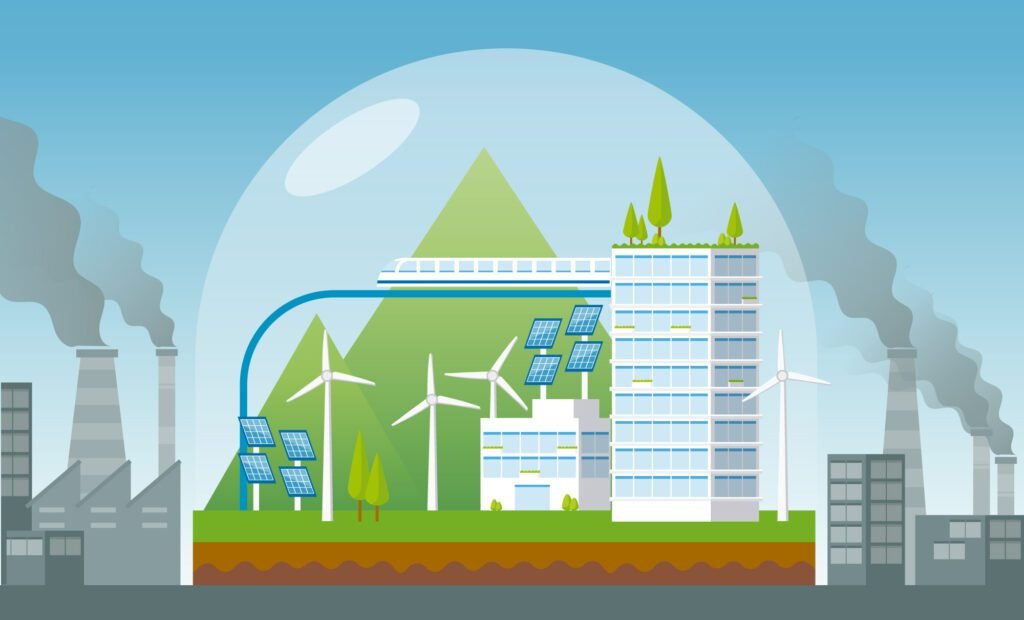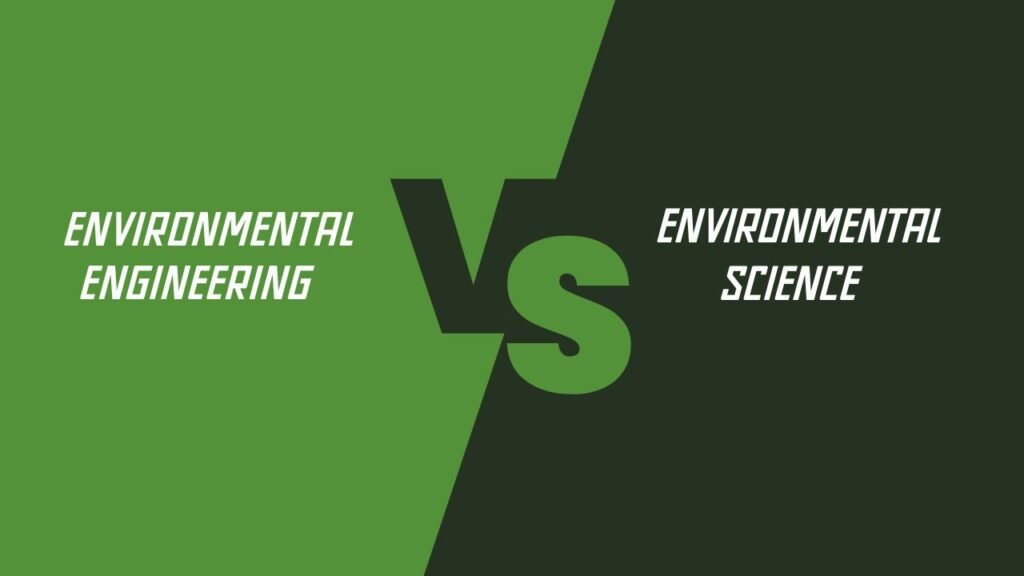Career Advancement Opportunities for Environmental Engineering Graduates
Introduction
Environmental engineering is a dynamic field that integrates principles of engineering, biology, and chemistry to develop solutions for environmental problems. As the world becomes increasingly aware of the importance of sustainable practices, the demand for environmental engineers continues to grow. This article explores the myriad of career advancement opportunities available for graduates in this field, offering insights into various sectors, roles, and the skills necessary to excel.

The Growing Importance of Environmental Engineering
The Need for Sustainable Solutions
In today’s world, the emphasis on sustainability and environmental protection has never been greater. Governments, corporations, and communities are all recognizing the need for sustainable solutions to combat climate change, pollution, and resource depletion. Environmental engineers play a crucial role in designing and implementing these solutions, making their expertise highly sought after.
Diverse Career Paths
Environmental engineering graduates have a wide array of career paths to choose from. These paths can be broadly categorized into several sectors, each offering unique opportunities for growth and specialization.
Sectors and Roles in Environmental Engineering
Government and Regulatory Agencies
Environmental Protection Agencies
Working for government agencies such as the Environmental Protection Agency (EPA) can be highly rewarding. These roles often involve developing and enforcing regulations to protect the environment, conducting research, and working on public policy initiatives.
Local and State Governments
Local and state governments also employ environmental engineers to manage public works projects, oversee waste management systems, and ensure compliance with environmental laws. These positions often provide opportunities to work closely with communities and make a tangible impact on local environments.
Private Sector
Environmental Consulting Firms
Environmental consulting firms offer a range of services, including site assessments, environmental impact studies, and sustainability consulting. Working in this sector allows engineers to tackle diverse projects and collaborate with various industries to improve their environmental practices.
Engineering and Construction Companies
Many engineering and construction companies employ environmental engineers to ensure that their projects comply with environmental regulations and sustainability standards. These roles often involve working on large-scale infrastructure projects, such as building green buildings, designing sustainable transportation systems, and managing water resources.
Non-Profit Organizations
Environmental Advocacy Groups
Non-profit organizations focused on environmental advocacy provide opportunities for engineers to work on projects aimed at protecting natural resources and promoting sustainable practices. These roles often involve research, public education, and policy advocacy.
International Organizations
International organizations, such as the United Nations Environment Programme (UNEP), offer opportunities to work on global environmental issues. These positions can involve travel, cross-cultural collaboration, and the chance to make a significant impact on international environmental policies.

Essential Skills for Career Advancement
Technical Proficiency
Environmental Modeling and Simulation
Proficiency in environmental modeling and simulation software is crucial for many roles. These tools help engineers predict environmental impacts, design sustainable systems, and optimize resource management.
Data Analysis
Strong data analysis skills are essential for interpreting environmental data, conducting research, and making informed decisions. Familiarity with statistical software and data visualization tools can be highly beneficial.
Soft Skills
Communication
Effective communication skills are vital for conveying complex technical information to non-experts, writing reports, and collaborating with diverse teams. Engineers must be able to articulate their ideas clearly and persuasively.
Project Management
Project management skills are important for overseeing large projects, managing budgets, and ensuring that projects are completed on time and within scope. Certification in project management can be a valuable asset.
Continuous Learning
Professional Development
Staying current with advancements in the field is essential for career growth. Pursuing additional certifications, attending conferences, and participating in professional organizations can help engineers stay up-to-date with the latest trends and technologies.
Advanced Degrees
Pursuing an advanced degree, such as a Master’s or Ph.D., can open up opportunities for specialized roles, research positions, and academic careers. Advanced education can also provide a deeper understanding of complex environmental issues and innovative solutions.

Career Advancement Strategies
Networking
Professional Associations
Joining professional associations, such as the American Academy of Environmental Engineers and Scientists (AAEES), can provide valuable networking opportunities, access to industry resources, and professional development programs.
Industry Conferences
Attending industry conferences and seminars allows engineers to connect with peers, learn about the latest advancements, and showcase their work. These events can also provide opportunities for collaboration and career advancement.
Mentorship
Finding a Mentor
Having a mentor can provide guidance, support, and valuable insights into career development. Mentors can help engineers navigate challenges, set career goals, and identify opportunities for growth.
Becoming a Mentor
As engineers gain experience, becoming a mentor to junior colleagues can be a rewarding way to give back to the profession. Mentoring can also enhance leadership skills and provide a sense of fulfillment.

Building a Strong Professional Portfolio
Showcasing Projects
Documenting Work
Maintaining a detailed record of projects, including objectives, methodologies, outcomes, and personal contributions, is essential. This documentation can demonstrate expertise and experience to potential employers or clients.
Creating a Digital Portfolio
A digital portfolio, hosted on a personal website or professional networking site like LinkedIn, can effectively showcase an engineer’s work. Including case studies, project summaries, and visual aids such as photos and videos can make the portfolio more engaging.
Publishing Research
Writing Articles
Publishing articles in industry journals, magazines, and online platforms can establish an engineer as a thought leader in the field. Writing about innovative solutions, case studies, and industry trends can enhance professional credibility.
Presenting at Conferences
Presenting research findings at conferences is another way to gain recognition and build a professional reputation. It provides a platform to share knowledge, receive feedback, and network with industry leaders.
Emerging Trends and Opportunities
Renewable Energy
Solar and Wind Energy Projects
The renewable energy sector is rapidly expanding, offering numerous opportunities for environmental engineers. Working on solar and wind energy projects involves designing and implementing sustainable energy systems, conducting environmental impact assessments, and optimizing energy efficiency.
Energy Storage Solutions
Developing advanced energy storage solutions is crucial for the effective use of renewable energy. Engineers in this field work on designing batteries, improving storage technologies, and integrating storage systems with renewable energy sources.
Climate Change Mitigation
Carbon Capture and Storage
Carbon capture and storage (CCS) technologies are essential for reducing greenhouse gas emissions. Environmental engineers in this field work on developing and implementing CCS systems, conducting research on new technologies, and optimizing existing processes.
Climate Resilience Planning
Climate resilience planning involves designing infrastructure and systems that can withstand the impacts of climate change. Engineers work on projects such as flood management, coastal protection, and resilient urban planning.
Sustainable Urban Development
Green Building Design
Green building design focuses on creating energy-efficient, environmentally friendly buildings. Engineers in this field work on designing sustainable building systems, conducting energy audits, and ensuring compliance with green building standards.
Smart Cities
The development of smart cities involves integrating technology and sustainable practices to create efficient, livable urban environments. Environmental engineers play a key role in designing smart infrastructure, managing resources, and implementing sustainable urban planning strategies.

FAQs
What are the primary sectors for environmental engineering graduates?
Environmental engineering graduates can work in various sectors, including government and regulatory agencies, private sector companies, non-profit organizations, and international organizations. Each sector offers unique opportunities for career advancement and specialization.
What skills are essential for Career Advancement Opportunities for Environmental Engineering Graduates?
Key skills for career advancement include technical proficiency in environmental modeling and data analysis, strong communication and project management skills, and a commitment to continuous learning through professional development and advanced degrees.
How can environmental engineers build a strong professional portfolio?
Engineers can build a strong portfolio by documenting their work, creating a digital portfolio, publishing research articles, and presenting at industry conferences. Showcasing projects and demonstrating expertise can enhance professional credibility.
What are some emerging trends in environmental engineering?
Emerging trends include renewable energy projects, climate change mitigation technologies, and sustainable urban development. These areas offer numerous opportunities for innovation and career growth.
How can networking and mentorship benefit environmental engineers?
Networking and mentorship provide valuable opportunities for career development. Joining professional associations, attending industry conferences, finding a mentor, and becoming a mentor can help engineers build connections, gain insights, and advance their careers.
Conclusion
Environmental engineering graduates have a wealth of career advancement opportunities available to them. By exploring diverse sectors, developing essential skills, and staying current with emerging trends, engineers can build successful and impactful careers. Whether working in government, the private sector, non-profits, or international organizations, environmental engineers play a crucial role in creating sustainable solutions for a better future.


